
A recent survey conducted by Business Consulting Resources (BCR) Hawai’i indicates that sustained success in a family business depends largely on the realisation of two crucial factors. Firstly, having clearly defined collective goals. Business trajectories are rarely linear, but vision (and this includes generational transition) is essential to longevity. Equally important are family dynamics. Families that manage expectations ensure realistic outcomes.
BCR’s findings also suggest that robust governance structures are invaluable, helping to maintain stability and delineate the roles of family members. Moreover, families that effectively manage and resolve conflicts add resiliency to their enterprise, making space for prosperity.
Here is a summary of BCR’s survey: an attempt to determine how these factors, goals and family dynamics impact the success of family businesses.

Entering the Family Business
For some, the decision to join a family business is similarly non-linear. Next-generation family business members have much to consider before joining. Often, the best indicator is the value that they can add to the business.
Developing the requisite skills to make a positive contribution to the family business is crucial. According to the 2018 survey conducted by BCR, 51 per cent of respondents worked at another company before joining the family venture. That number is compounded by the 23 per cent that attended university beforehand.
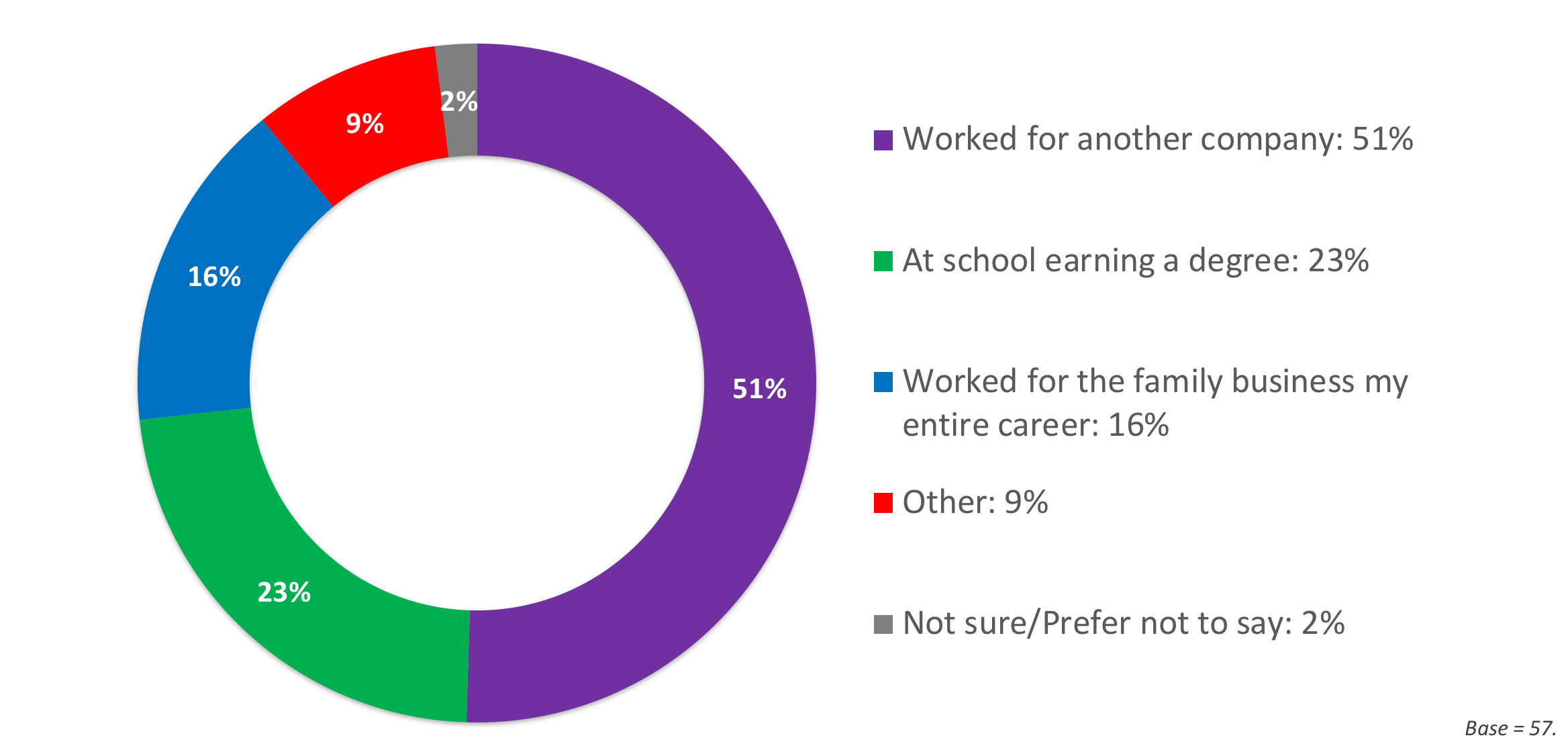
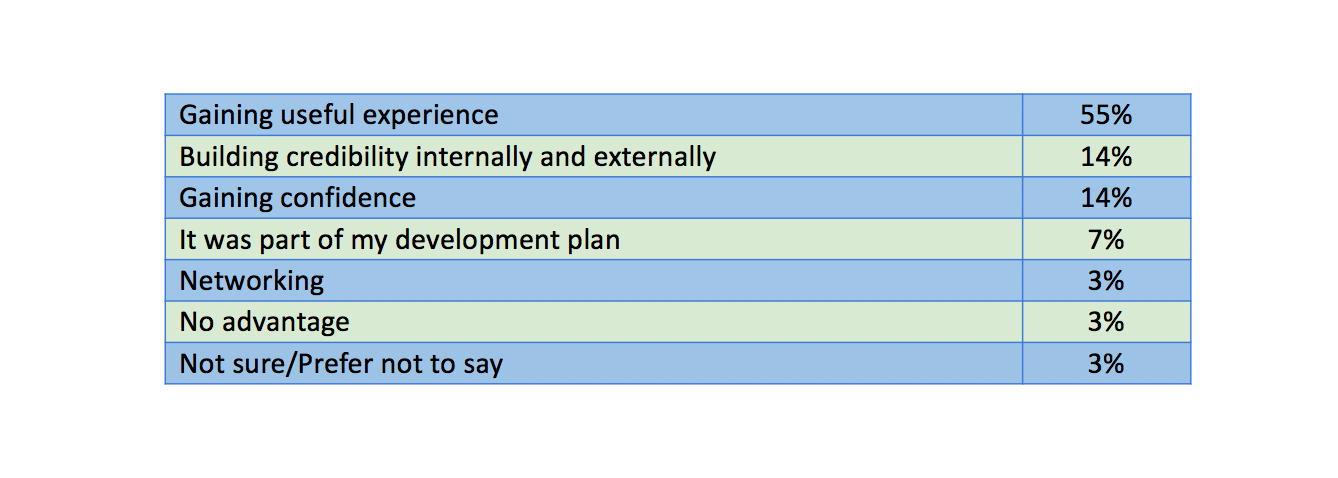
Another consideration is the cross-compatibility of the company and the newly admitted family member. This means mutual understanding and, often, the possibility of professional development.

A driving factor behind next-gen compatibility is whether or not they have clearly defined goals that align with the family and the business. Roughly 90 per cent of respondents felt that their role is clearly defined and their performance expectations are understood.
Additionally, three-quarters of those surveyed felt that their future career path is well-defined and that a process to develop their skills is in place. The data overwhelmingly indicates not only that the next generation is compatible with their family business, but also that structures are in place for them and the company to succeed.
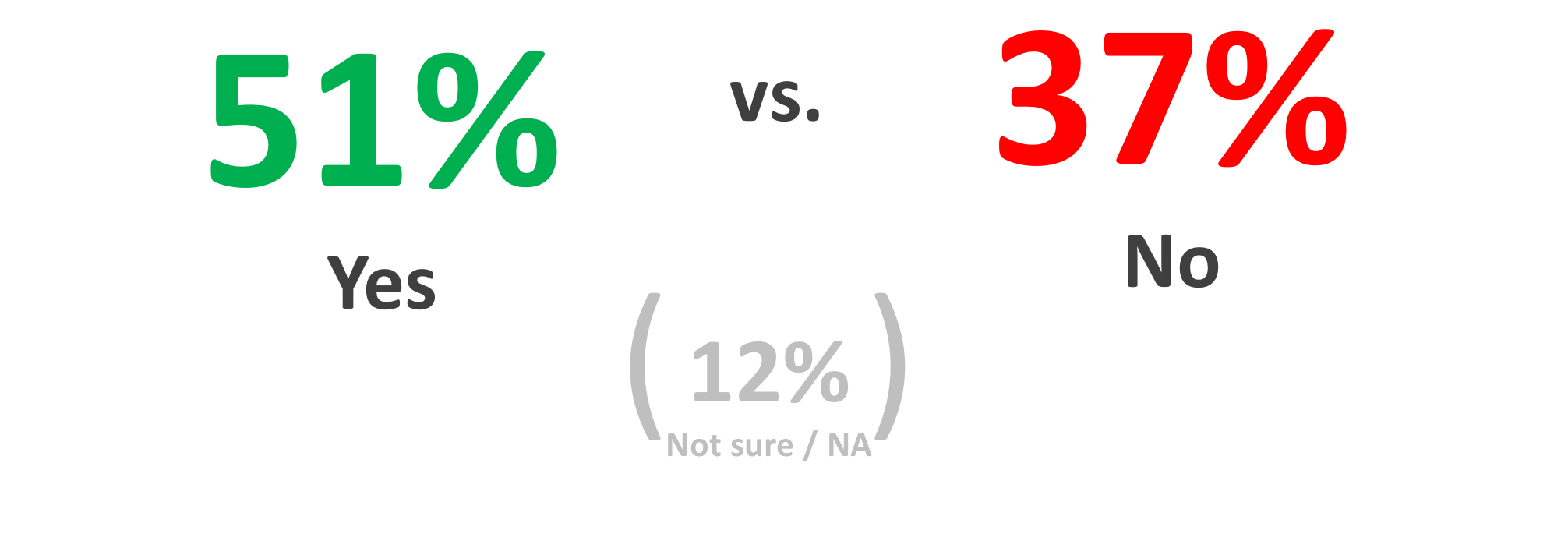
The Succession Plan
However, the survey also indicates that many family businesses have not accounted for a key aspect of next-generation involvement: succession. Only 51 per cent of the companies surveyed indicated that they had a succession plan in place. Without a formalised, well-thought-out arrangement, companies stand to at worst collapse and at best lose valuable resources determining the best path forward at a potentially critical juncture.
For those companies with a succession plan, the importance of cohesion cannot be understated. While 60 per cent of businesses have a unifying strategy for their future in their succession plan, nearly as many businesses are also applying resources to prepare and develop a successor before succession takes place.
The Transition
A succession plan, while extremely useful for charting the future of the company, is not a panacea for the transition of power to the next generation. Sometimes, challenges arise between the managing generation and the successor regardless.
The foremost issue that comes up when navigating the handover is the accompanying change in family dynamics. Dealing with the shift is a challenge for 47 per cent of those surveyed. Around a quarter of respondents note that the issue is exacerbated by the fact that they struggle to convince the older generation to relinquish responsibility.
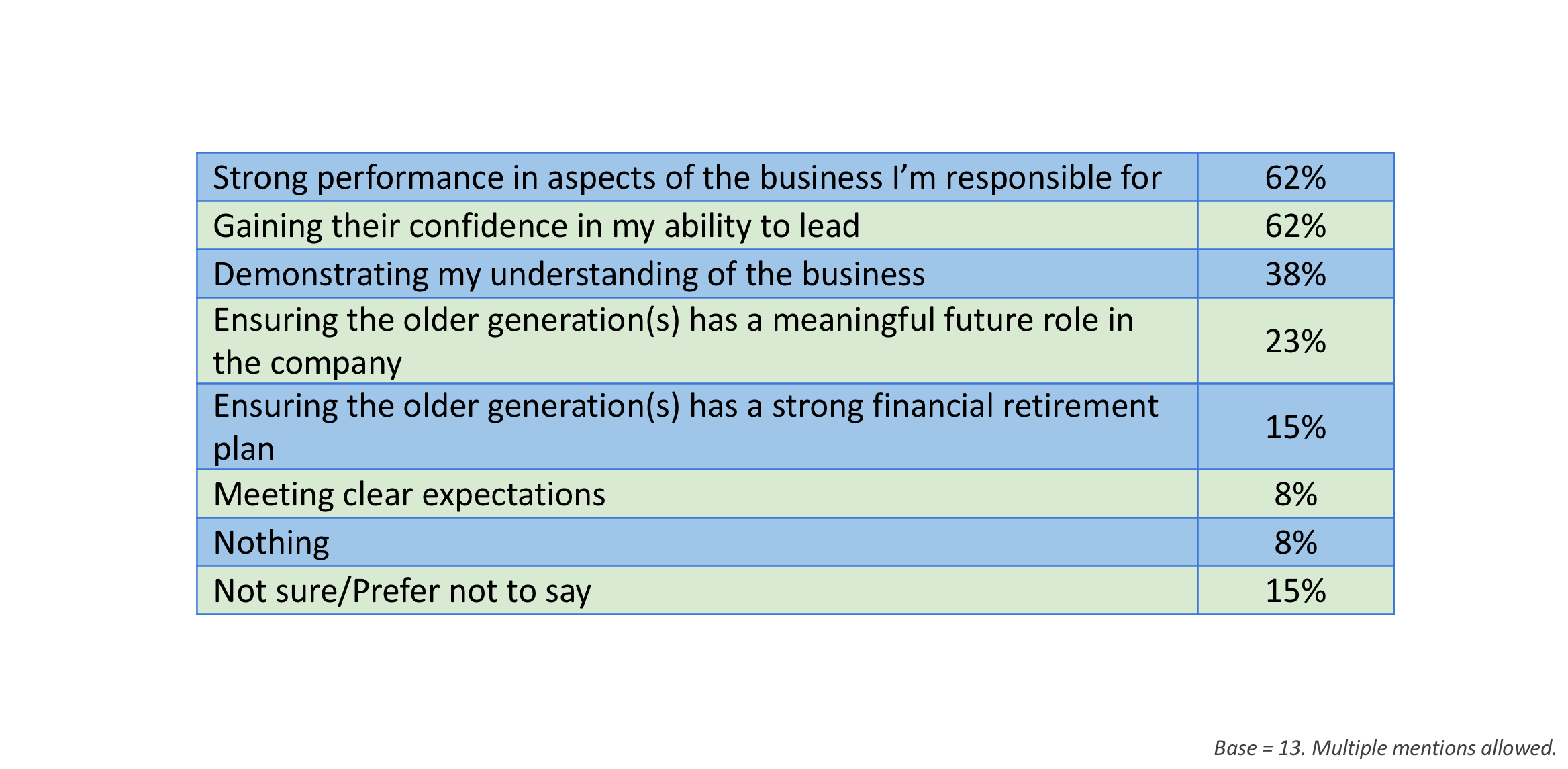
Only 40 per cent of the sample group asserts that their understanding of the business is equally important. These figures indicate that leadership and performance are qualities that outshine knowledge of the business.
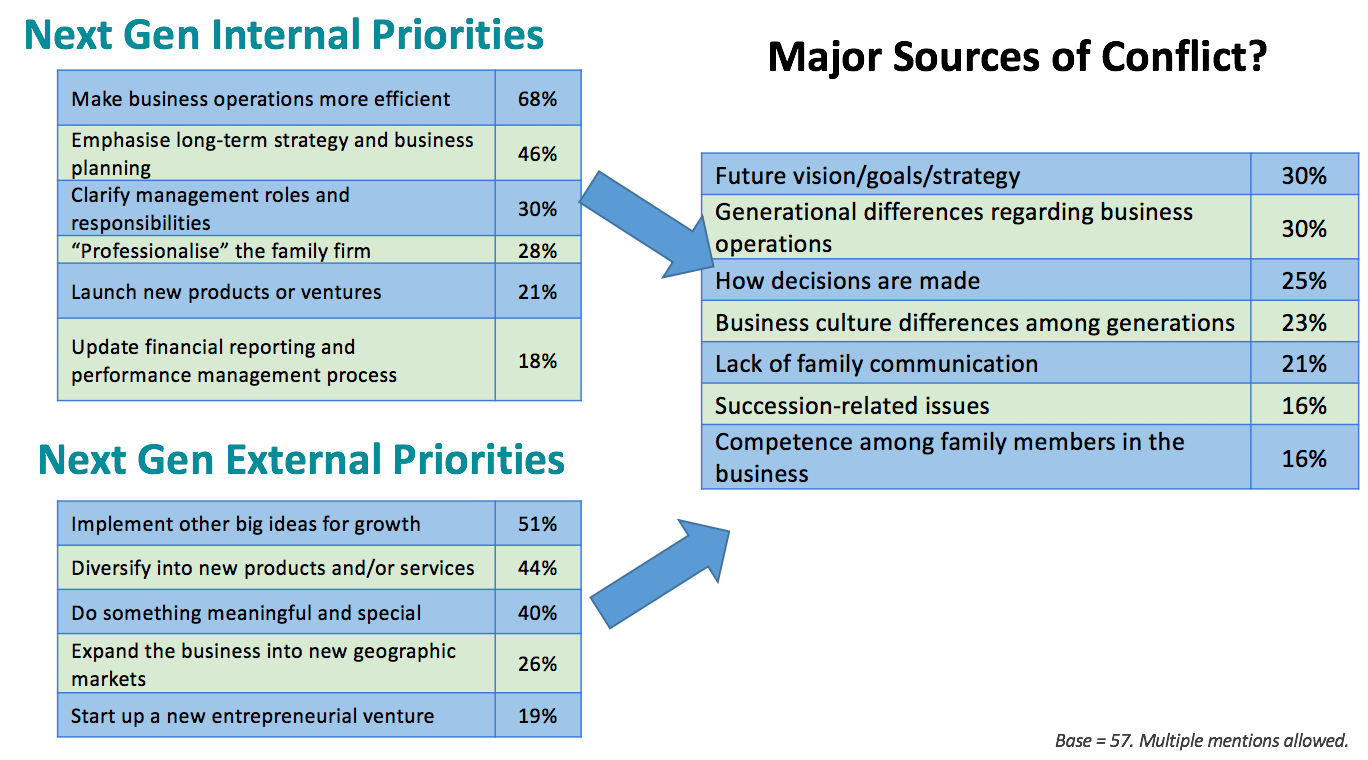
Conflict Resolution
Even though the next generation may have the qualities required for transition, conflict may still arise in how they go about it. Thus, the ability to adapt in order to manage and resolve conflict is crucial.
Generational incongruence, when it comes to internal and external priorities, can also cause friction. Sixty-eight per cent of next gens believe that the most important internal goal is to make the business more efficient. Similarly, their external priority lies with the implementation of other big ideas for growth. Clearly, the next generation prioritises innovation.
It is no wonder that the most significant source of tension is related to this push for change. Discrepancy, when it comes to a vision for the future, causes issues for 30 per cent of next-generation family business members. A similar portion feels that differences in operational decision-making are problematic.
Therefore, the study suggests that a smooth transition occurs when the outgoing leadership relinquishes control to the next generation in a well-planned succession as soon as they have gained the necessary skills and experience required to lead. Trust, engendered by shared values and vision, is a key component in this arrangement. In a well-executed transition, the older generation must believe that their progeny is more capable than they are to grow the business, letting their parents’ values and vision inform their decision-making but having the authority to modify the business and define their own success.
Business Consulting Resources, Inc. (BCR) has been working with family-owned enterprises for over 30 years. For more information visit www.BCRhawaii.com









